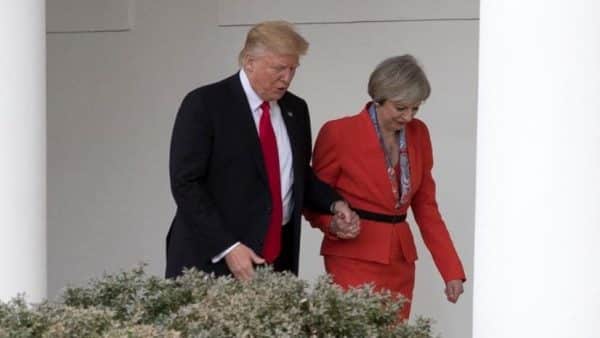
The FT is reporting that US President Donald Trump sees Germany as a ‘currency manipulator’ of sorts, a view bound to have negative consequences for bilateral relations. What’s more, according to the Financial Times, Trump’s top trade advisor, Peter Navarro, has accused Germany of using a “grossly undervalued” euro to “exploit” the United States as well as Germany’s own EU monetary union partners. This makes three countries in Trump’s sights: China, Mexico and, now, Germany.
First, here’s exactly what the FT is reporting:
Germany is using a “grossly undervalued” euro to “exploit” the US and its EU partners, Donald Trump’s top trade adviser has said in comments that are likely to trigger alarm in Europe’s largest economy.
Peter Navarro, the head of Mr Trump’s new National Trade Council, told the Financial Times the euro was like an “implicit Deutsche Mark” whose low valuation gave Germany an advantage over its main trading partners. His views suggest the new administration is focusing on currency as part of its hard-charging approach on trade ties.
In a departure from past US policy, Mr Navarro also called Germany one of the main hurdles to an American trade deal with the EU and declared talks with the bloc over a US-EU agreement, known as the Transatlantic Trade and Investment Partnership, dead.
That’s an extremely aggressive view of the situation – and quite frankly, it’s totally wrong! Here’s why.
For years now, the German press, German banks, and even German monetary policy officials have all been singing from the same hymn book – the one that preaches tighter monetary policy and lower inflation. This was true even at the peak of the sovereign debt crisis six years ago. And it is well-documented.
For example, back in 2011, then ECB chief economist Jürgen Stark resigned in protest over the ECB’s quantitative easing monetary policy after Bundesbank President Axel Weber resigned for the very same reasons. Stark gave an interview with the Frankfurter Allgemeine Zeitung outlining his views. I translated them into English at the time:














Leave A Comment